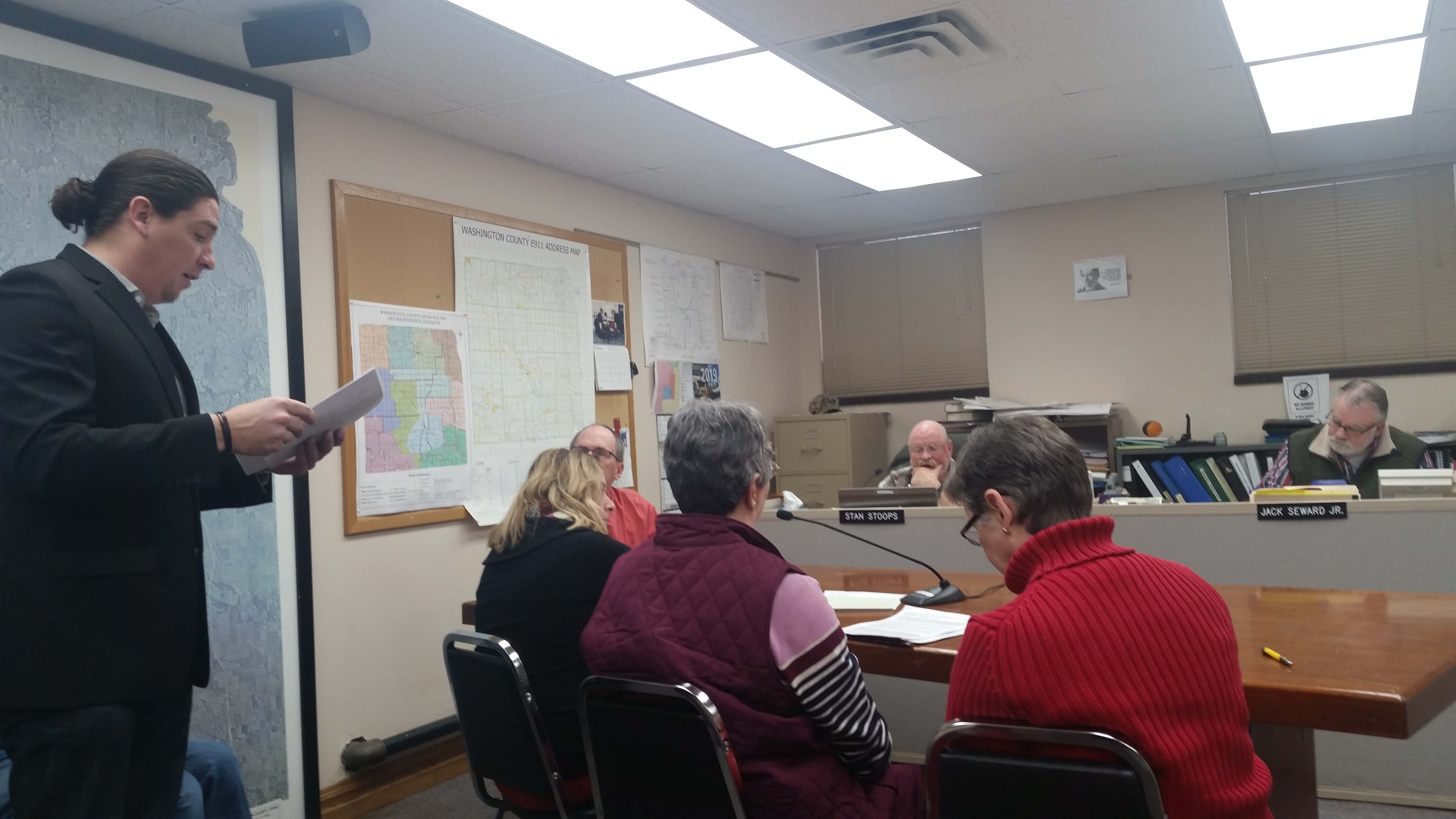
Policy more than funding was discussed at Thursday’s workshop for the Washington County Public Library Association and the Washington County Board of Supervisors. At a supervisors meeting in January, the Washington Public Library’s policy that allows children over the age of 10 the intellectual freedom to read as they desire was questioned. At that meeting Supervisor Jack Seward said, “Just be aware that if you’ve got some policies that kind of go against our beliefs it could affect your funding.” At the workshop, Seward read two complaints he received regarding the policy, which is set by the library board which is in accordance with state law and is based on the Fourth Amendment of the U.S. Constitution. Each supervisor said they do not agree with the age 10 part of the policy. Washington Library Director Bryna Walker explained patrons can challenge policies and be put on the agenda for library trustee meetings. Seward shared printout copies of research he’d done individually.
Washington City Administrator Brent Hinson explained the ultimate liability is on the city, “First of all, let’s remember why we’re here at this time. We’re here at this time because there was an implicit, maybe not so implicit, threat to tie funding to changing of a particular policy; that’s the definition of bullying in this, in this arena. Second, I would urge the board to leave the legal interpretations to the county attorney. This case law, this information from the state law library has been referred to the county attorney, he’s been given the information. That’s who you should rely on your legal advice for, not Wikipedia. Next, our policies are based on appropriate legal guidance. Age 10, the reason the policy was changed from age 14 to age 10, is because age is 10 is what the courts have identified as the age of reason. Thus the policy has an underlying tie to what the case law is. Next, as the owners and operators of the libraries, the cities are the ones with legal liability should a constitutional challenge arise. City attorneys will ultimately provide the review of any policies and are responsible to protect the cities from liability. Thank you.”
Washington Mayor Jaron Rosien also gave a statement supporting the libraries as “crucial pillars” of communities.
Washington resident Gwen Ying supports the current policy, “So the parent better look inside and think not, ‘What is the library doing?’ Because they’re doing a wonderful job, and I don’t think they should be restricted. And the parent should think, ‘How am I preparing this child for life?'”
Children’s librarian Jo Weidner said she’s explained the policy to many parents over the years, “But for as many that disagree, believe me, there are just as many that agree and get what we are saying. They understand it. And we have made a very good opportunity to give them every direction to be able to get like that family card. Or, you know, if a letter comes in the mail it’s addressed to the child, the parent has the right to open it. We are not shutting down parents when they’re coming into the library and saying, ‘Nope, not telling you.’ We are a great facility. We work with these families. We have hundreds of children coming through that library that have every different kind of issue, and to be inclusive we’ve got to understand what they need and what where they’re coming from. And I think we do a wonderful job of reaching out to these kids when they’re walking in the door, many without families that really don’t care. And we do care. And I put hats and gloves on those kids, under Bryna’s direction, last week in that bitter cold for the kids that were coming in without. We feed kids in that library. So we are doing our job taking care of the children in our community. And I just hope you don’t let one policy change your decision on how you can help us to continue to do what we do at the library. Thank you for your time.” She was met with applause.
Family library cards are one option, where the parents have access to all of the circulation information. The library policy reads: “The Library Director, as Custodian of Records, or his-her designee is granted the authority, but not the obligation, to provide a parent or guardian access to his/her child’s circulation records if that child is under the age of 10.” Supervisor Abe Miller said the best thing is to make parents aware of the option and said while they may not necessarily agree with the age the supervisors still support the libraries.

